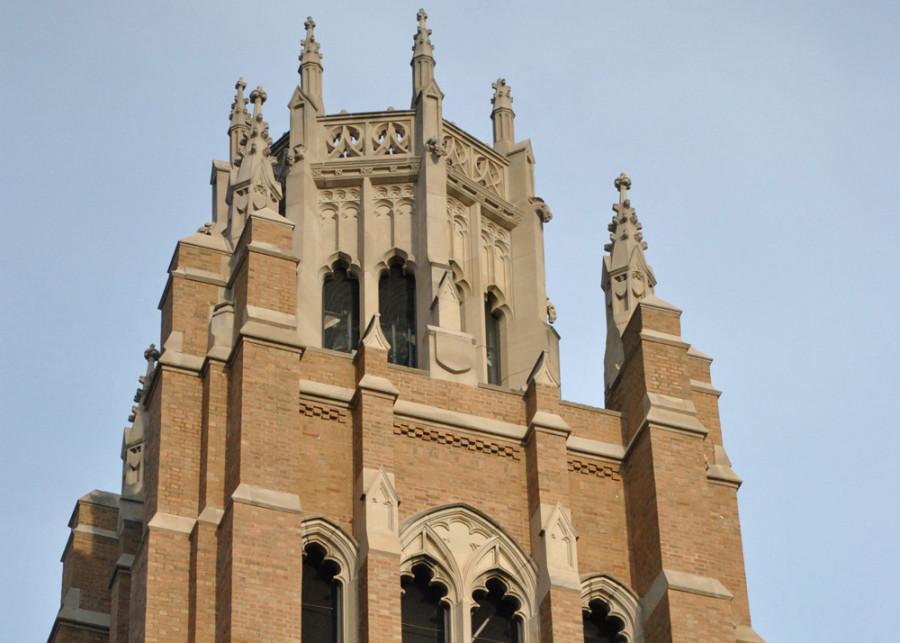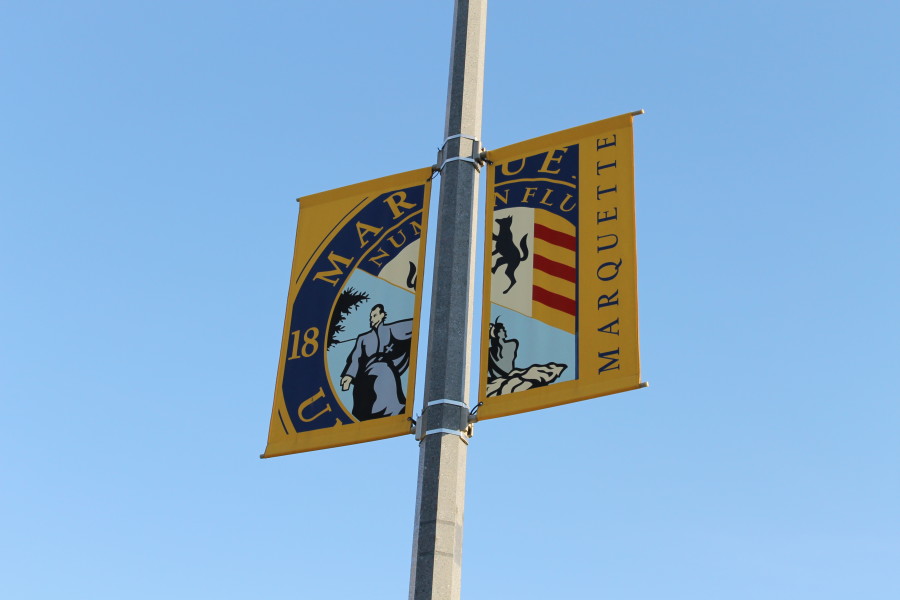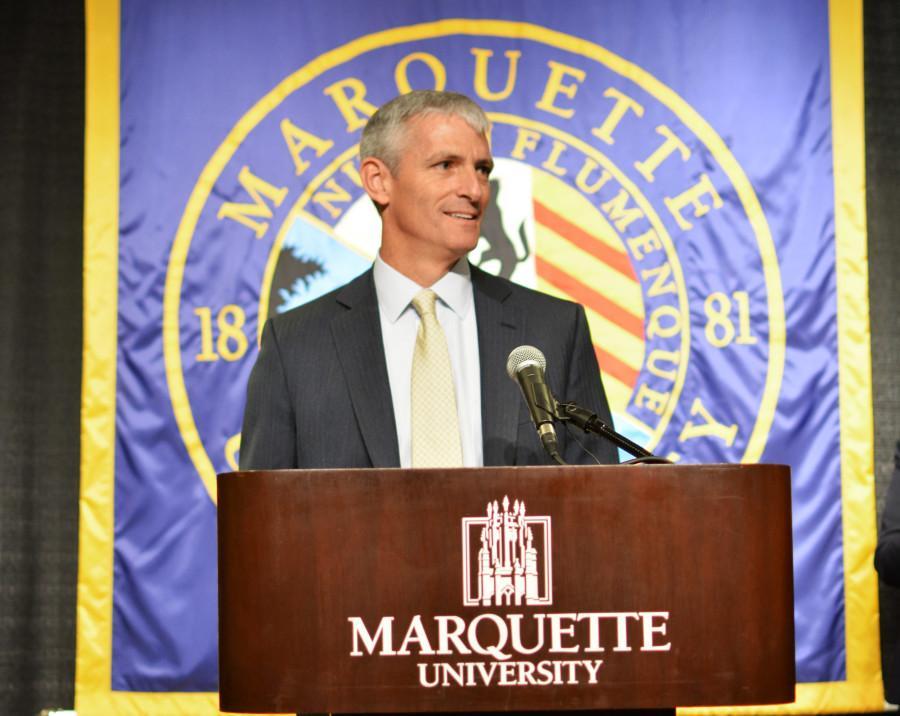Marquette has been without official leadership in its sustainability efforts since the retirement of Vice President of Planning Tom Ganey this October, and some think the university’s recognition as a green college by the Princeton Review may be on the line.
Although university spokesman Andy Brodzeller said a new officer is set to be announced in early spring 2015, members of Students for an Environmentally Active Campus said they think the university could be doing more to maintain its status as an eco-friendly campus.
Triniti Micek, a sophomore in the College of Engineering and president of SEAC, said the club has been struggling without the proper leadership at the university level.
“To us, not having an (officer) of sustainability is a huge blow to sustainability on campus, and shows that the university doesn’t take it seriously,” Micek said
Previous Sustainability Officer Mike Whittow worked as part of the Office of Administration prior to its dissolution last February. After the office was eliminated, Ganey took the reigns as sustainability officer, in addition to his other duties as vice president of planning.
During the interim, the Office of Finance will review the work and task force led by Ganey, and current efforts are expected to continue as planned.
“There is progression in sustainability at Marquette, and it’s something the university will continue to invest in,” Brodzeller said.
Some of the current efforts the university is engaged in include:
- Increased recycling efforts, like painting and posting signage in trash rooms at residence halls
- Collaborating with MUSG to sustain reusable “Ozzie” container use at dining halls
- Certifying all new buildings on campus with environmental “LEED” certifications
The university also invested $7 million in energy and water efficiency improvements and environmental sustainability is explicitly stated as one of the six major themes of the university’s strategic plan, Brodzeller said.
But environmental efforts took a hit last spring when Marquette severed ties with Milwaukee-based Growing Power, a group that aided in the university’s composting efforts, because they began charging for the service. Micek said SEAC is working on finding a new partnership to continue the composting efforts.
SEAC is also working on getting better hand dryers in academic buildings to reduce paper towel waste, as well as continuing its “Take Back the Tap” campaign to sever the university’s relationship with Pepsi and convince students to make use of the newly-implemented water bottle refilling stations around campus.
Another point of concern for Micek and previous SEAC officers has been that Marquette did not sign the St. Francis Pledge, a “Catholic Climate Covenant” for Catholic groups to take proactive measures against climate change.
SEAC and Marquette Student Government asked Marquette to sign the St. Francis Pledge last February.
David Mullins, a senior in the College of Engineering and former president of SEAC, said his time was also strained with getting things accomplished at the university level.
“(When) I was in SEAC, it was always a struggle to get the student voice to get through to the Marquette administration,” Mullins said.
Micek said attempts made by Mullins and other officers to get Marquette to endorse the pledge were “swept under the rug” by Marquette’s previous president, the Rev. Scott Pilarz. She also noted that when a SEAC officer approached President Lovell at a forum this semester, he had never heard of it.
“This whole thing seems fishy to us,” Micek said, “and we want to get to the bottom of it especially since the Princeton rating isn’t going to last forever and sustainability on campus needs to start being taken seriously.”
Brodzeller said reports and documents on the pledge shared to the university by SEAC are being reviewed by John Lamb, vice president for finance, and will be shared with the next sustainability officer. He did not mention if Marquette would support the pledge.
Mullins, however, is optimistic for the future.
“Good things are happening,” Mullins said, “and I’m hopeful that new leadership in spring will allow for newer and better environmental issues to take hold.”





